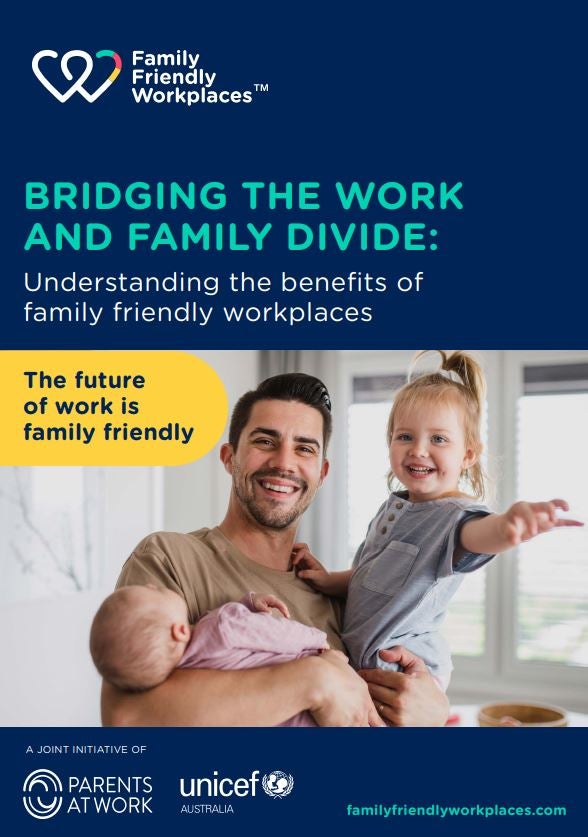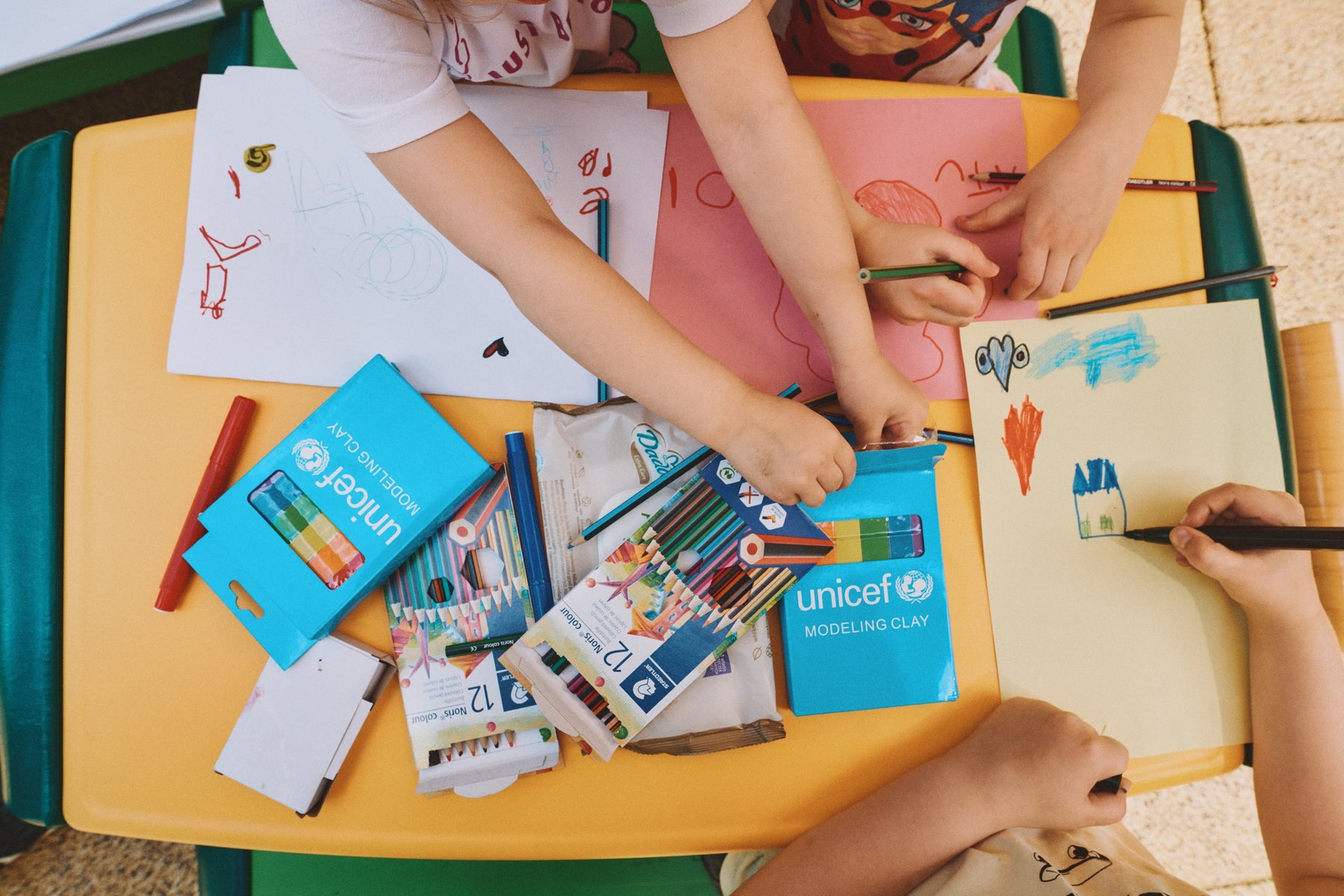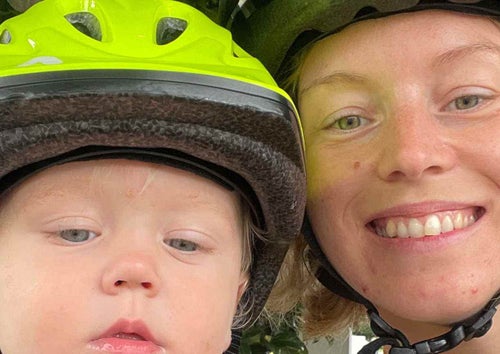From our work in more than 190 countries, for more than 75 years, we know that quality connection time is essential for the overall wellbeing and happiness of the parents, carer and child.
Be certified as a Family Friendly Workplace Discover some Family Friendly Workplaces in actionIn 2023 we have a bold vision to make Australia Family Friendly. With the support of the Office for Women we are scaling this program to reach another 500 organisations 2025. We’re striving to increase the opportunity for children and their families to thrive in a post COVID-19 world, and to do this, Australian employers are asked to make their workplaces family friendly by providing flexible, gender inclusive, childcare assistance and wellbeing workplace policies and practices. To help make Australia become family friendly tell your colleagues, families and employers about this program, and the benefits for them. Tell your organisations to get certified as a Family Inclusive Workplace.
A 2019 survey of more than 6,000 working parents and caregivers found high levels of stress, anxiety and fatigue, with 63 percent of those surveyed reported challenges balancing the responsibilities of work and family, with women continuing to shoulder most caring responsibilities. The extended lockdowns during COVID-19 provided a unique opportunity to catalyse some of the flexible working models that many workplaces implemented into a long-term sustainable shift in practice.
Bridging the work and family divide post COVID-19 involves employers, Government, community services and families working together to build a pathway for recovery and reimagine the future of work and care.
"By becoming a family friendly accredited workplace we’re making it clear that we welcome and celebrate the different set of circumstances and needs that each parent brings to ING. This creates an environment where parents feel understood and encouraged to find the right balance between work and home, leading to better work and life outcomes. We think our approach is the right one for any modern workplace wanting to encourage happier, healthier and higher performing people – both at work and in their personal lives."
In 2021, UNICEF Australia and Parents at Work, partnered together to create National Work + Family Standards through the Family Friendly Workplaces Program – an Australian first. Organisations are invited to step forward to be benchmarked against the standards and to commit to creating a work AND family action plan.
The shift to a family-friendly workplace contributes to:
- Improved wellbeing outcomes for employees, their children and other loved ones they care for
- Greater workforce participation of those with caring responsibilities
- Reduced carer-related discrimination
- Enhanced workplace productivity and engagement
- Improved gender equality outcomes
- Fostering a safe and inclusive workplace culture
There is a compelling economic and social argument that investing in a family-friendly workplace culture, where policies and practices support employees to effectively manage work and family needs, is not only good for children, families and communities, but it’s also good for business, and the wider economy.
To find out more information or to join the Family Friendly Workplaces program, please visit:
https://familyfriendlyworkplaces.com/
"Relationships with family, friends and communities enrich our lives and strengthen our social bonds. By supporting these relationships, we endeavour to help create a balanced, happy high performing employee. This is why we introduced our Family Bond. This is more than a new benefit for our employees – it’s the embodiment of our company culture and values. Parental leave helps us build diverse teams, which sparks creativity and innovation, and strengthens our business. As you would expect of Volvo, it is gender neutral and applies equally to same sex and adoptive parents."
315,000+
employees are directly benefiting from family-friendly policies and practices in their workplaces.
104
organisations across Australia are implementing family-friendly policies and practices.
More about family friendly workplaces

Read our latest report on bridging the work and family divide
Discover the benefits of family friendly workplaces and the positive impact it is having on people, their families and organisations.







